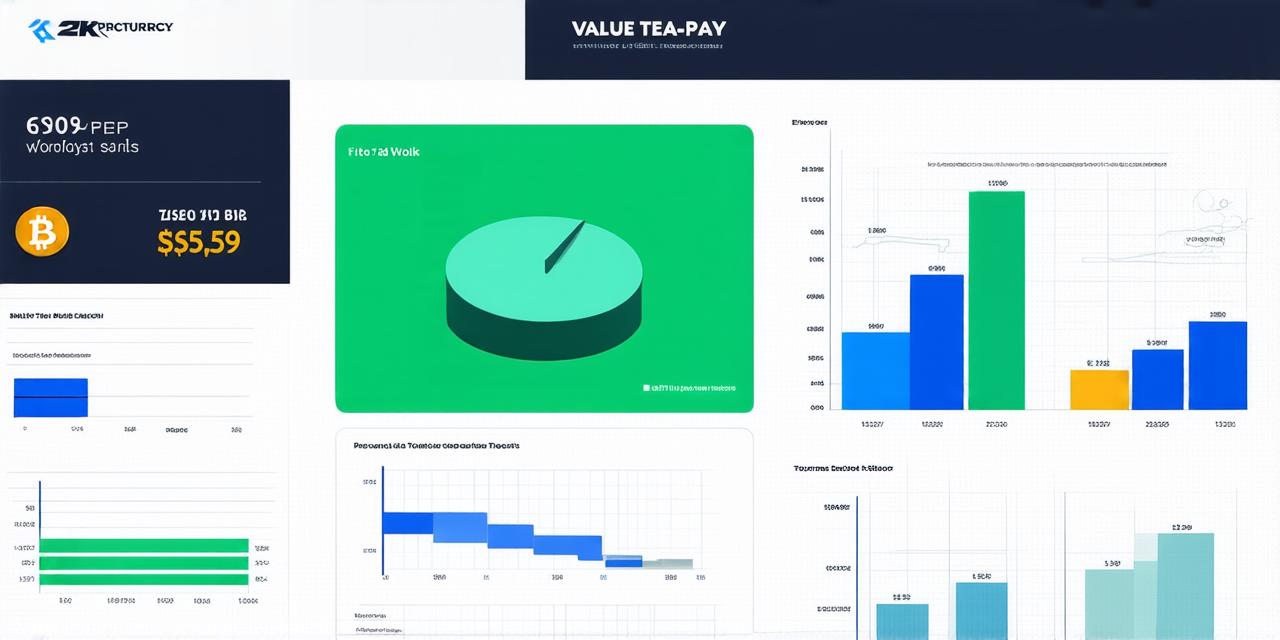Introduction
The world of cryptocurrencies is a rapidly evolving landscape, with new digital currencies being developed every day. As more individuals and businesses adopt these digital currencies, it’s important to understand their value and significance in the global economy. In this article, we will explore the current value of cryptocurrency and examine its potential future worth.
Cryptocurrency Overview
A cryptocurrency is a decentralized digital currency that uses encryption techniques to secure transactions and control the creation of new units. The first cryptocurrency, Bitcoin, was created in 2009 by an unknown individual or group of individuals using the pseudonym Satoshi Nakamoto. Since then, thousands of other cryptocurrencies have been developed, each with its own unique features and benefits.
The Value of Cryptocurrency
One of the key aspects of cryptocurrency is its value, which is determined by supply and demand. The price of a cryptocurrency can fluctuate greatly, with some reaching record highs and lows in a short period of time. As an example, Bitcoin’s value soared from just a few cents in 2010 to over $60,000 in 2021, before dropping back down to around $34,000 in 2022.
There are several factors that can impact the value of a cryptocurrency, including its adoption rate, regulatory environment, technological advancements, and overall market sentiment. Additionally, the supply of a cryptocurrency is limited, which means that as demand for it increases, the price will likely rise as well.
The Importance of Cryptocurrency
Cryptocurrency is important for several reasons, including its potential to disrupt traditional financial systems and provide greater financial inclusion to underserved populations. Additionally, cryptocurrencies can offer faster and more secure transactions than traditional payment methods, making them ideal for businesses that operate in international markets.
Another key benefit of cryptocurrency is the ability to make anonymous transactions, which has made it a popular choice for individuals who wish to protect their privacy. Furthermore, cryptocurrency can be used for a variety of purposes, including investment, online purchases, and charitable donations.
Case Studies and Personal Experiences

One example of the importance of cryptocurrency is the story of El Salvador, which became the first country in the world to adopt Bitcoin as legal tender in 2021. The move was inspired by the government’s desire to promote financial inclusion and reduce reliance on traditional payment methods like banks. As a result, many individuals in El Salvador have been able to access financial services that they were previously unable to use.
Another example is the use of cryptocurrency for charitable donations. In 2020, the non-profit organization Unicef launched its first-ever crypto fundraiser, which raised over $1.5 million in Ether (ETH) donations from individuals around the world. The funds were used to support Unicef’s work in providing education and healthcare to children in need.
FAQs
Q: What is the current value of Bitcoin?
A: As of March 2023, the current value of one Bitcoin is approximately $28,000.
Q: How does the supply of a cryptocurrency impact its value?
A: The limited supply of a cryptocurrency can lead to increased demand and higher prices, as seen with Bitcoin’s value fluctuations over the years.
Q: What are some potential use cases for cryptocurrency?
A: Cryptocurrency can be used for investment, online purchases, charitable donations, and more. It also has the potential to disrupt traditional financial systems and provide greater financial inclusion to underserved populations.
Conclusion
The current value of cryptocurrency is subject to fluctuation, but its importance in the global economy cannot be overstated. As adoption rates continue to increase and regulatory environments evolve, we can expect to see continued innovation and growth in the world of cryptocurrencies. Whether you are an individual investor or a business looking to adopt these digital currencies, it’s important to stay informed and understand their potential value and impact on the economy.
